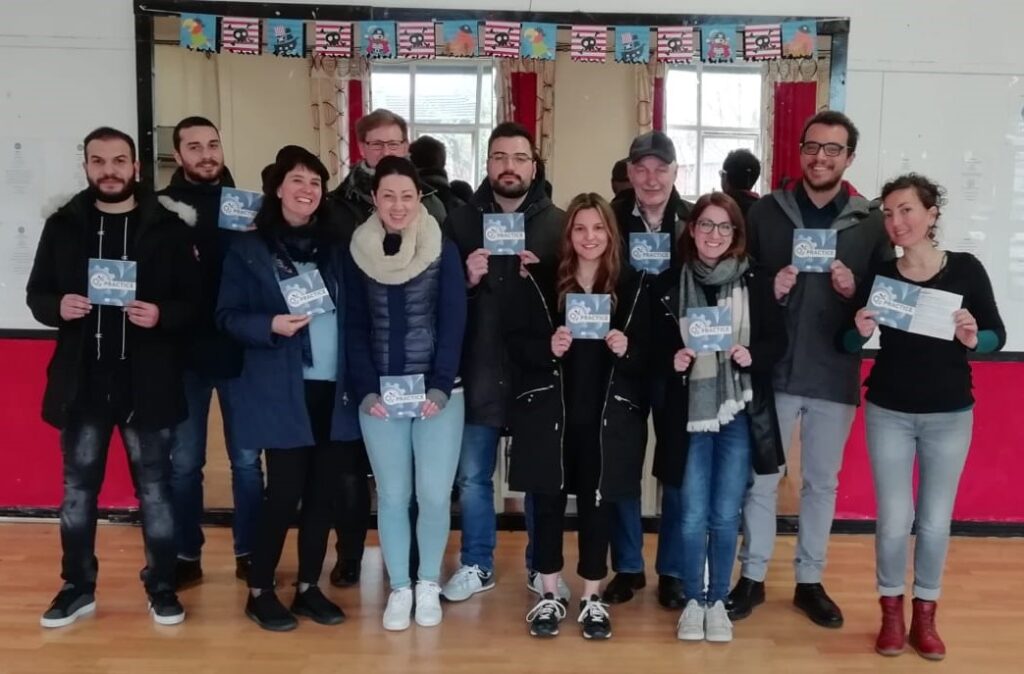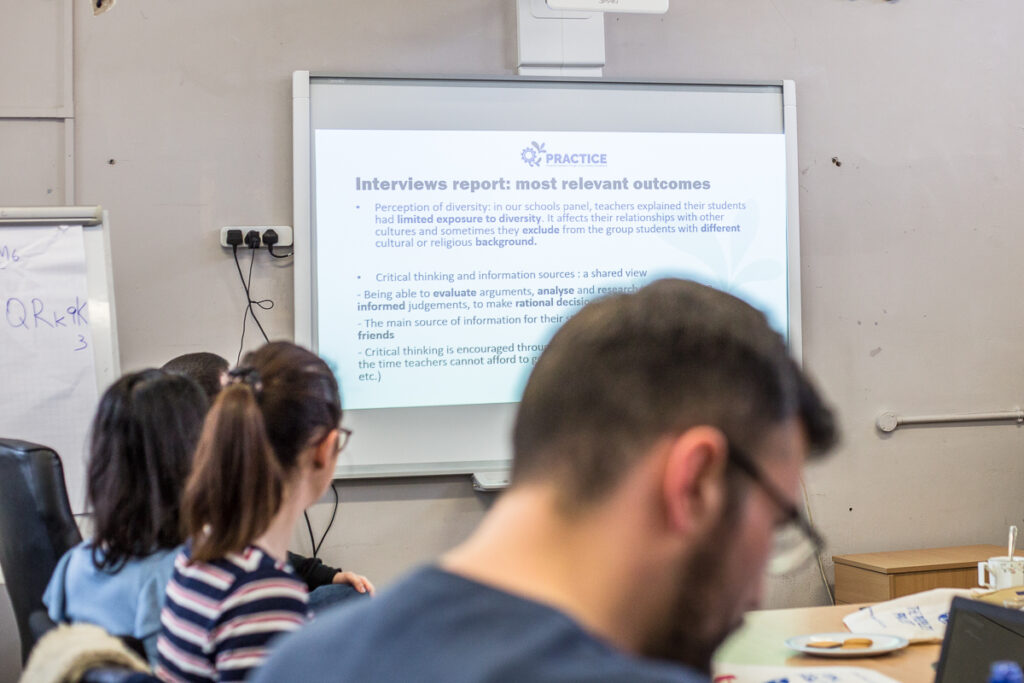PRACTICE – Preventing Radicalism through Critical Thinking Competences
Preventing radicalisation in school by empowering teachers through continuing professional development.
Grant Agreement Number: 2018-1-IT02-KA201-048442
Funded by: Erasmus+ Duration: 09/2018-08/2021

Challenge
Schools play a key role in preventing radicalisation by promoting common European values, fostering social inclusion, enhancing mutual understanding and tolerance, and developing students’ critical thinking about controversial and sensitive issues as a key protective factor against radicalisation.
The Paris Declaration (2015) states teachers need new skills and competences to deal with complex classroom realities and to confidently respond to diversified groups, while the continuing professional development (CPD) programmes have been recognised as not always sufficiently relevant to teachers’ needs.
In this framework, CPD approaches should be developed to respond to relevant needs and challenges of teaching methods, applicable to diverse learners with the aim to prevent radicalisation.
Innovation
PRACTICE aims at preventing radicalisation in school by empowering teachers through continuing professional development, using participatory methods with schools at local, national and EU level.
Action



European Commission’s support for the production of this content does not constitute an endorsement of the contents, which reflect the views only of the authors, and the Commission cannot be held responsible for any use which may be made of the information contained therein.
Project Partners







